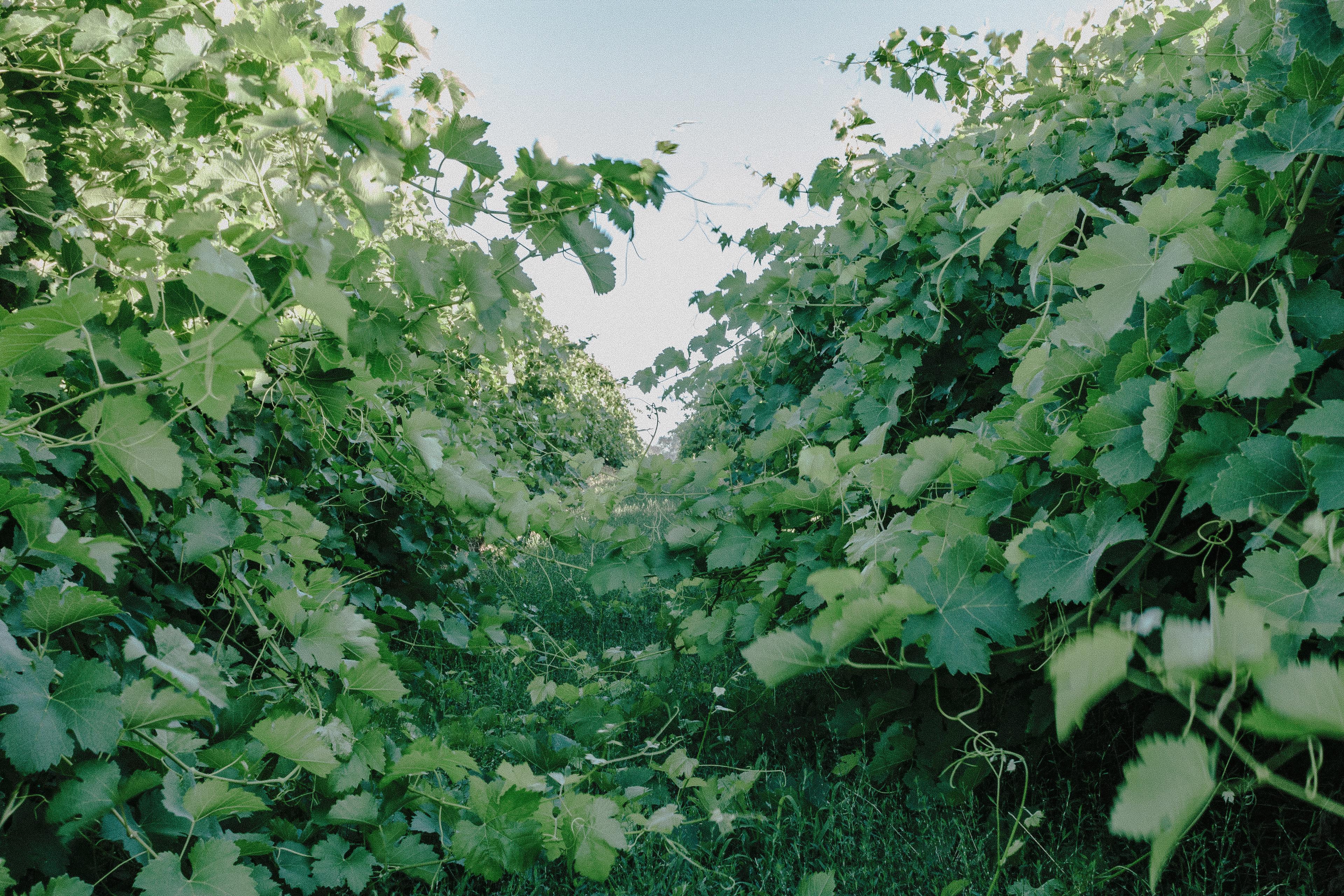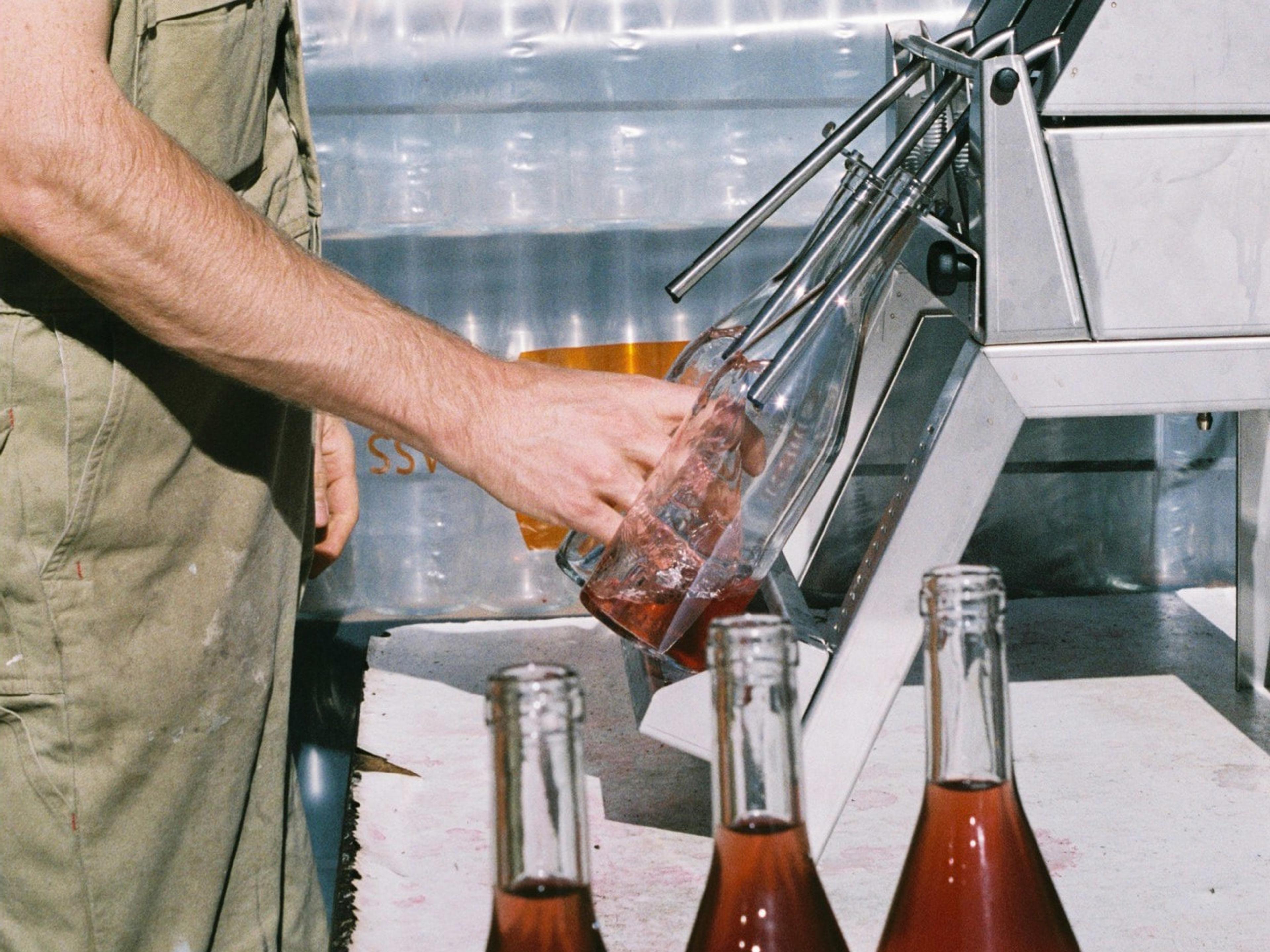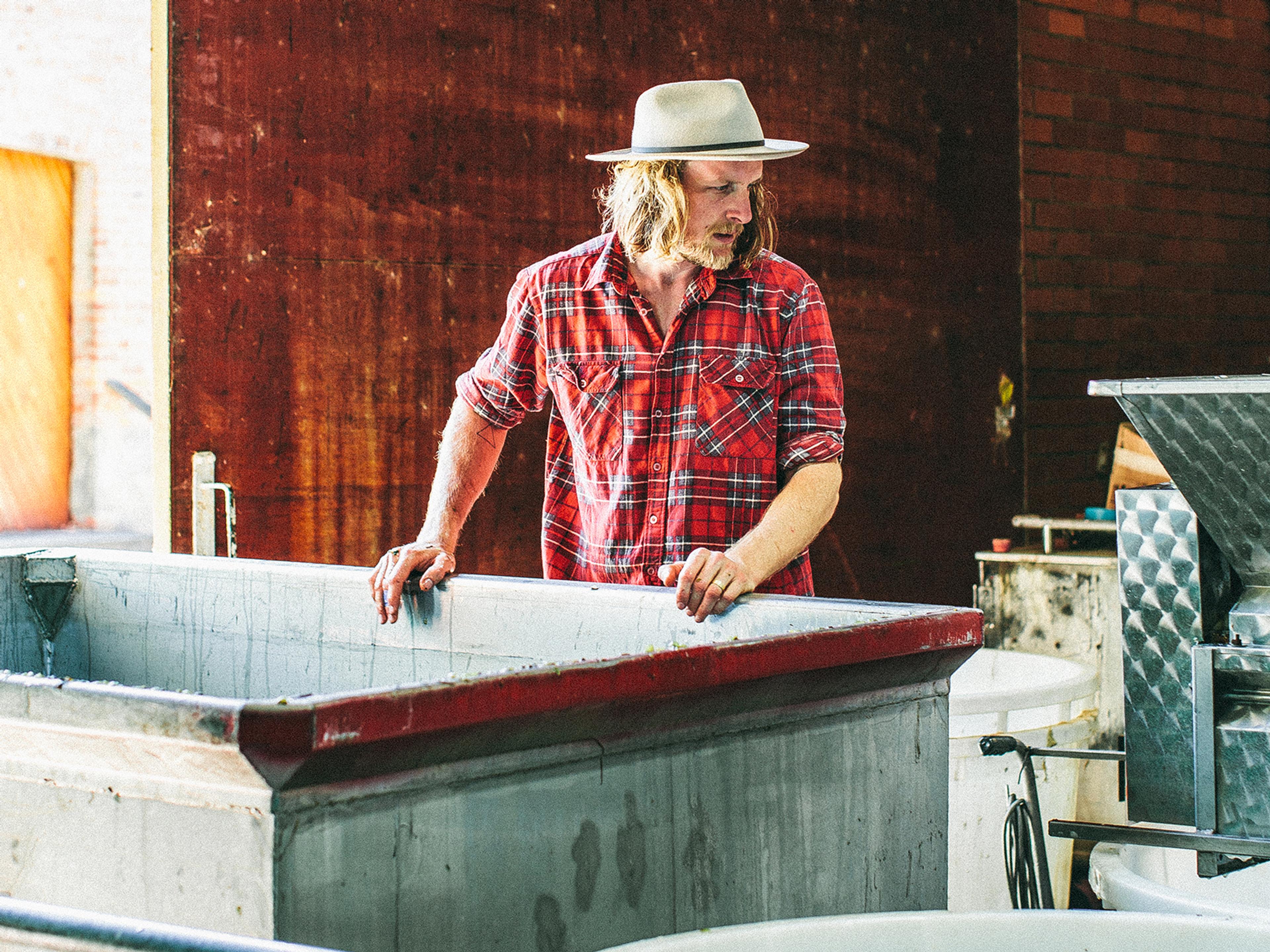In the Business of Regeneration with Minimum Wines
Meet Minimum
Minimum Wines appeared on the Australian viticulture scene in 2020; a personal ‘project of love’ from Matt and Lentil Purbrick. I knew Matt and Lentil as the gardeners, farmers, winemakers, writers, poets and educators behind Grown & Gathered and The Village, two books that sit well-thumbed and lovingly spattered on thousands of kitchen benchtops.
On a plot of family land in rural Victoria, Matt and Lentil nurtured a thriving demonstration of an alternative food system – one that would help shift Australia towards a future where organic farming and whole foods are known simply as farming and food. But what about wine? Responding to the groundswell of hunger for regenerative everything, Minimum Wines took the Australian Organic/Minimal Intervention wine industry by surprise, setting an example of what it means to be in business with the planet.
The Journey
Matt is the fifth generation of Purbrick at Tahbilk Winery, and the first to operate under organic and regenerative principles. Grown on the traditional lands of the Yorta Yorta in Toolamba, Victoria, Minimum’s journey began in 2016 when Matt convinced his family to go organic, converting a 125-acre vineyard near Toolamba on the Goulburn River from conventional to organic.
As with many family farms and businesses, conversations leading up to the organic trial weren’t easy. Fortunately, the profit margins in organic viticulture at the time got their ideas over the line. Matt and Lentil sweetened the deal by promising to purchase the grapes, securing a safe transition. Their 2018 and 2019 harvests were considered In Conversion Organic by the ACO.
Fast forward a few growing years to 2020, when Melbourne and much of Australia were in lockdown. Busy establishing their production, processing and delivery supply chains, Minimum had equipped themselves with a diverse and skilled team that reflected the ethos of the brand. At that time, organic and minimal intervention wines weren’t on the average Australian consumer’s radar, with most unfamiliar with the language and terms of natural wine. Yet the national wine market was seeing a steady increase in consumer demand due to COVID-19 housing restrictions, and Matt and Lentil spotted these gaps in the market. Alongside the unique consumer habits wrought by COVID-19, the opportunity was ripe to re-engage with their community.
Right from the start, Minimum prioritised storytelling, sharing the ecological benefits of regenerative practices, from-scratch recipes, poems and locally written narratives all in an effort to revive a sense of connectedness in a time that felt anything but. Through social media, newsletter subscriptions, and their community zine, Minimum infused its wine with a potent message about the power and benefits that come with supporting Australian products that partner with nature.
The Rhythms of Nature
In a short period of time, Minimum increased production and supply to keep up with demand – but there were other forces in play.
China had imposed high tariffs on the Australian wine industry, effectively closing the border to exports overnight. Minimum assumed they wouldn’t be impacted because they operated in an alternative market space from the conventional, cheap Australian wine this affected.
Reflecting on this, Matt speaks to how in nature, not only are systems cyclical but everything is connected. A shift in the broader, macro environment will still affect micro-environments, no matter how protected.
Likewise, Minimum’s spurt of growth in their production and supply, though nested within a regenerative system and an apparently separate customer base, was ultimately beholden to the larger market shifts taking place across Australia. The result was a backlog of idle stock as Australians took advantage of the glut of cheap Australian wine.
Lessons learned, Matt is now conscious of ensuring that Minimum not only farm with the rhythms of nature, but translate such practices to their business strategy, buffering the effects of volatile markets.
Rather than frame these events in the negative, Matt remains open and curious, wondering if we’re starting to see our current economy for what it is: fragile. How can we operate differently when we’ve convinced ourselves that we need to respond to consumer demand in ways that prioritise efficiency and effectiveness?
Redesigning Business Rhythms
For decades, businesses have been built on the goal of profit maximisation, with a disregard for their social and environmental impacts. This system has been largely responsible for Australian business and industries' siloed approach to relationships with ecological systems.
As a business itself – though never willing to compromise on their core values – it took a few journeys around the sun to put systems in place that allowed Minimum to find financial and social equilibrium.
Building a regenerative wine business and evenly allocating time and resources across cultural engagement, social connection, community, positive impact and producing a profit was uncharted territory. Staff members saw their roles expanding beyond the usual professional confines to encompass storytelling and cultural shifts, elevating the arts, creativity, social positivity and community wellbeing through wine.
Reflecting the values and ethics we need now and in future generations of businesses, Minimum is a fantastic example of what’s possible when we no longer measure success by profit alone, but by the resilience and strength of community. Creating and selling a product that embodies these values at a time when society largely chooses comfort over culture, convenience over quality, and rarely recognises the human story behind their food, positioned Minimum to use the opportunity to connect not only to wine but the larger purpose of the business.
Sharing Their Impact
In the years since Minimum’s launch, the organic, minimal intervention and natural wine markets have grown exponentially. At a time when consumers’ options are multiplying, a product’s story and how a business communicates its ethics are more important than ever.
In Australia, Minimum recognises that both our baseline and premium standards could all be a little higher when it comes to working with social and ecological systems, and believes that some consumer expectations and satisfaction could be challenged by the current ethics and standards of certifications in place.
However, businesses that aspire to uphold their certifications (or go beyond certification standards) face the challenge of ensuring customers are aware of their points of difference. Minimum is both Organic and B Corp certified and aims for complete transparency with the Australian customer. This is a welcome challenge at a time when many businesses and companies talk about impact-led work publicly, but rarely back it up with evidence.
Minimum is raising the bar on integrity, transparency and regeneration, encouraging consumers to rally behind similarly principled businesses to drive positive change. The business has committed to contributing at least 5% of revenue to positive social and environmental impact including paying the rent to First Nations-owned and led organisations for living and working on stolen land and planting one tree for every dozen wines sold as a member of 1% for the Planet.
Looking forward
As the market gains momentum and in an effort to reflect the principles of regeneration, Minimum aspires to make their product accessible to as many customers as possible. They’re exploring how to use offers such as their Days & Nights range of boxed wines to introduce a new audience to what it means to be regenerative. Minimum has consciously chosen to make this range more financially accessible and has plans to release a second lower-cost line. They view initiatives such as these as key to engaging a diverse market and ensuring all Australians have the opportunity to experience good, clean wine.
Minimum has been met with considerable consumer enthusiasm. The question for the next generation of business owners in Australia is how we move beyond individual consumption and encourage people to support those businesses that give back to the community.
If anything, Covid enabled a rise in community-driven enterprises, shifting consumer patterns to support smaller and local enterprises. But with the current cost of living crisis, consumer behaviour has started to return to pre-Covid patterns where convenience and cost are prioritised. Minimum is swimming against the current and despite the economic challenges of the world we live in, are passionate about helping their community continue to move towards a state of regeneration rather than degeneration, setting an example of what it means to be in business with the planet.
If you’d like to know more about Minimum you can find them here.
Viticulture definitions
Conventional wine
The use of synthetic chemicals and inputs is permitted during the processes of cultivation (vines) and vinification (winemaking).
Organic wine
The grapes are grown without the use of chemical pesticides or herbicides or synthetic fertilisers. The wine is made without the use of chemical additives, however, there are 39 allowed organic additions other than grapes, including cultivated yeast.
Biodynamic wine
Biodynamic wine is very similar to organic, but takes an even more natural approach, with fewer potential additives, a closer alignment with natural cycles and processes and a strong focus on soil health and animal manure.
Minimal intervention
Minimal intervention wines are made from organic or biodynamic grapes with an ethos to intervene with the natural fermentation (wild yeast fermentation) process as little as possible. Minimal intervention winemakers only use small amounts of anything other than grapes, always organic and only as needed. This may include the addition of some sulphur.
Natural Wine
The most agreed-upon definition is that natural wine is made from organic or biodynamic grapes, and nothing else. Some natural winemakers will add a touch of sulphur but most see this as detracting from the ‘only grapes’ ethos.


